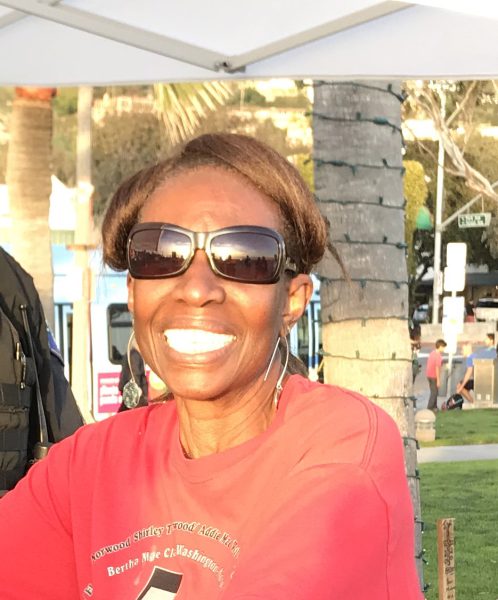
By Rebecca Washington-Lindsey
Visitors to Israel come for numerous reasons: some are on a personal pilgrimage, others come to walk where Jesus walked (the Garden, Wailing Wall, Temple Mount, take a dip in the Dead Sea or witness a Rabbi Writing in a Torah). One thing a visitor experiences is a taste of Jewish culture. I came with questions. What made this place distinctly Jewish? What do the symbols say about the culture, heritage, values, and strengths? How do the celebrations speak to their belief system? Why some Jewish men wear the distinctly different headdress? But, there are some facts I understand: that Jewish religion is deeply tied to being Jewish; that Judaism was grounded in the Kingdom of Judah about 400 years ago; their history is tied to being slaves in Egypt; and Holocaust remembrance continues to be a significant part of Jewish life today, according to chabad.org.
I was fortunate to hear more about our Jewish neighbors from Rabbi Elimelech Gurevitch and Perel Gurevitch from Chabad Jewish Center of Laguna Beach on Oct. 13. Perel unveils information that explains the importance of Jewish identity, describes the pearls of the High Holiday Celebrations, and identifies how Jews respond to hate crime.
Rebecca: Explain why being Jewish is important to you.
Perel and Rabbi Gurevitch: The Torah challenges us to live an ethical and moral life, and the ways in which living Jewishly, i.e., performing the Mitzvot of the Torah, helps to make the world a better place. I could speak about the importance of handing this gift down from generation to generation. But at the end of the day my Jewish identify is important to me simply because that is who I am at the core. The Torah is essential to what it means to be Jewish.
Rebecca: The Jewish communities around the globe recently celebrated many High Holiday Celebrations. Please describe how one or two celebrations connect to being Jewish.
Perel: Sukkot is joyful celebration that commemorates the safe passage of Israel through the desert. It also celebrates Jews being set free from Egyptian slavery. The seven days of Sukkot are celebrated by dwelling in the Sukkah-an outdoor temporary hut that becomes a dwelling place for five days. In the Sukkot, we celebrate by a candle lighting service, festive meals (four special vegetation), sharing words from the Torah, as well as singing Jewish songs.
Rebecca: Finally, to mention the words “hate crime” causes me to cringe, but it has been something that has happened to Jews across the world. What impact does hate crime have on Jewish relationships with others? How does it impact the Jewish community?
Perel and Rabbi Gurevitch: Jews are loving and peaceful people. Unfortunately, we are not strangers to hate through our history. The only positive aspect is the corresponding solidarity within the Jewish community itself. We feel blessed to live in a community like Laguna that is tolerant and truly diverse. Additionally, we have been touched by the support locally from our friends of all faiths. We will continue doing our part to bring light to challenging times, as we live out the core of who we are and what guides our lives—the Torah.
Thank both of you for this insightful conversation on celebrating our Jewish neighbors.
Rebecca is a Laguna Beach resident and former adjunct professor at University of Nevada, Las Vegas.




